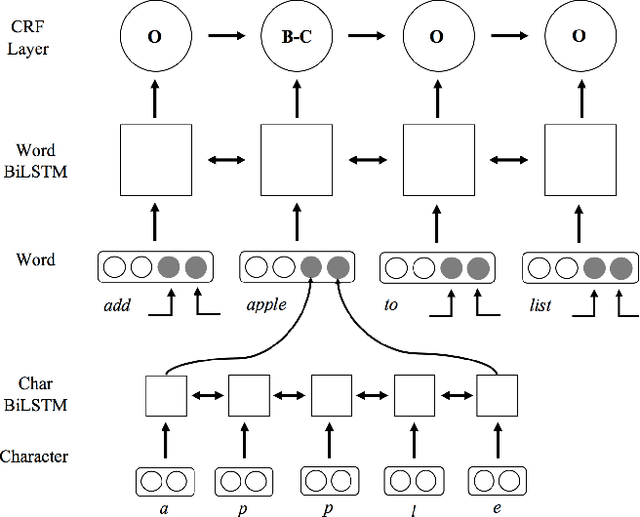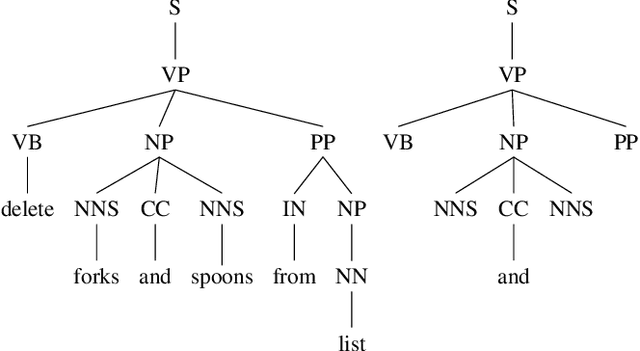Parsing Coordination for Spoken Language Understanding
Paper and Code
Oct 26, 2018



Typical spoken language understanding systems provide narrow semantic parses using a domain-specific ontology. The parses contain intents and slots that are directly consumed by downstream domain applications. In this work we discuss expanding such systems to handle compound entities and intents by introducing a domain-agnostic shallow parser that handles linguistic coordination. We show that our model for parsing coordination learns domain-independent and slot-independent features and is able to segment conjunct boundaries of many different phrasal categories. We also show that using adversarial training can be effective for improving generalization across different slot types for coordination parsing.
* The paper was published in SLT 2018 conference
 Add to Chrome
Add to Chrome Add to Firefox
Add to Firefox Add to Edge
Add to Edge